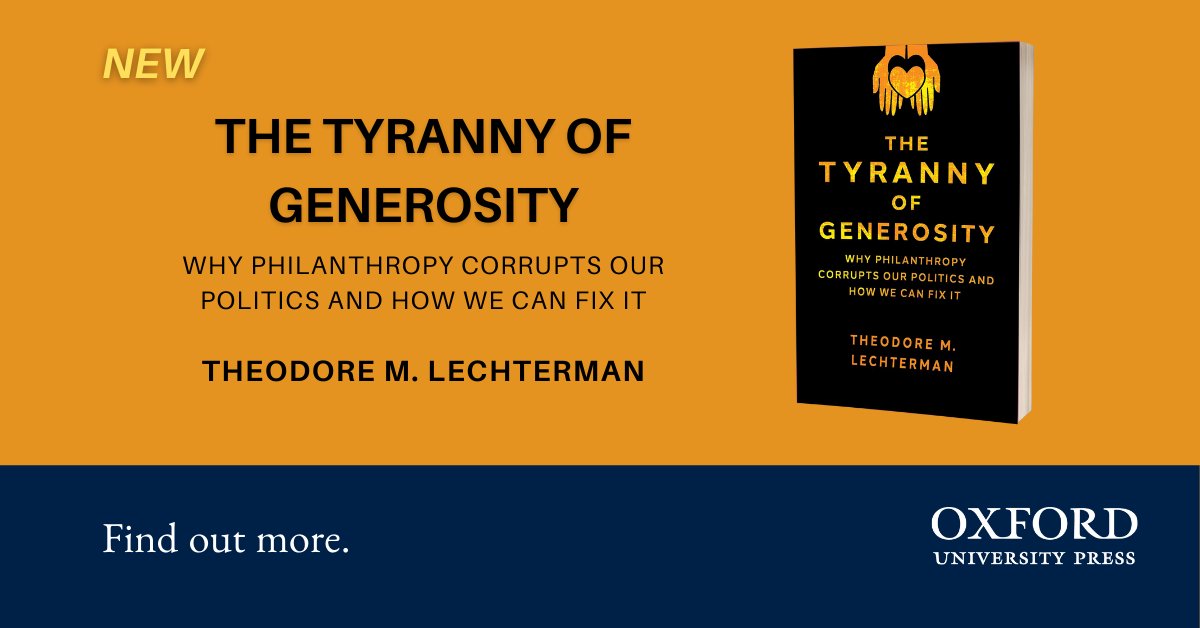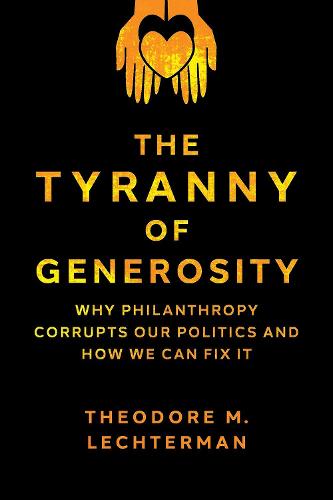The Tyranny of Generosity
Why Philanthropy Corrupts Our Politics and How We Can Fix It
The practice of philanthropy, which releases private property for public purposes, represents in many ways the best angels of our nature. But this practice’s noteworthy virtues often obscure the fact that philanthropy also represents the exercise of private power.
In The Tyranny of Generosity, Theodore Lechterman shows how this private power can threaten the foundations of a democratic society. The deployment of private wealth for public ends may rival the authority of communities to determine their own affairs.
And, in societies characterised by wide disparities in wealth, philanthropy often combines with background inequalities to make public decisions overwhelmingly sensitive to the preferences of the rich.
Allowing private wealth to dictate social outcomes collides with core commitments of a democratic society, a society in which people are supposed to determine their common affairs together, on equal terms.
But why exactly is democracy valuable? How should these values be weighed against the liberty of donors and the many social benefits that philanthropy promises?
Lechterman explores these questions by examining various topics in the practice of philanthropy: the respective roles of philanthropy and government, public subsidies for private giving, the use of donations for political speech, instruments of perpetual giving, the rise in giving by commercial corporations, and “effective altruism” as a guide for individual giving.
These studies build to a surprising conclusion: realising the democratic ideal may be impossible without philanthropy – but making philanthropy safe for democracy also requires fundamental changes to policy and practice.

About Theodore Lechterman
Theodore M. Lechterman is a political philosopher who studies how democratic principles apply to emerging practices. Currently a Research Fellow at the Institute for Ethics in AI at the University of Oxford, he has held previous fellowships at Stanford University, Centre for Advanced Studies Justitia Amplificata (Frankfurt), and the Hertie School (Berlin).
He regularly advises organisations and contributes to public debates in North America and Europe.
Reviews
“Technocrats and effective altruists look to philanthropy as a prized means to improve the world beyond the dysfunctions of democracy and pains of political engagement. Lechterman’s magnificent book shows why philanthropy must be assessed in relation to democratic norms and reveals a complex appraisal of the practice of altruism”.
Rob Reich, Stanford University, author of Just Giving: Why Philanthropy Undermines Democracy and How It Can Do Better (Princeton University Press, 2018)
“Philanthropy has become a major ethical-institutional practice in our societies. But good deeds can have effects that undermine the fibers of democracy. In his masterful and well-balanced treatise, Theodore Lechterman alerts us to the power dynamics unleashed by transforming private wealth into public service and influence. This is a timely and eye-opening book, both philosophically nuanced and politically astute”.
Rainer Forst, Professor of Political Theory and Philosophy, Goethe University Frankfurt



